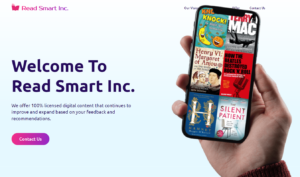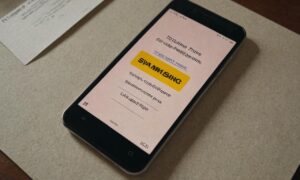The DHHS grant program scam on Facebook has been making rounds, luring unsuspecting individuals with promises of free government grant money. In this article, we’ll dive deep into the world of government grant scams and help you identify legitimate financial assistance programs.
As someone who has been actively researching and writing about various scams on social media platforms, I feel compelled to shed light on the DHHS grant program scam that has been circulating on Facebook. It’s crucial for everyone to stay informed and vigilant to avoid falling victim to these deceptive tactics.
I once received a message on Facebook claiming that I was eligible for a $50,000 government grant from the DHHS. The offer seemed too good to be true, and upon further investigation, I discovered that it was indeed a scam. It’s essential to trust your instincts and always verify the legitimacy of any grant offers you receive online.
What is the DHHS Grant Program Facebook Scam?
The DHHS grant program scam on Facebook involves fake social media accounts posing as representatives from the U.S. Department of Health and Human Services (HHS). These scammers send direct messages to individuals, claiming that they are eligible for a substantial government grant.
The scammers often use convincing language and official-looking logos to make their messages appear legitimate. They may even provide links to websites that mimic official government sites to further deceive their victims.
It’s important to remember that the real DHHS does not reach out to individuals through Facebook or other social media platforms to offer grants. If you receive a message claiming to be from the DHHS, it’s almost certainly a scam.
How to Identify Legitimate Government Grants
While the DHHS grant program on Facebook is a scam, there are legitimate government grants and financial assistance programs available. The key is to know how to identify them and where to find accurate information.
The U.S. Department of Health and Human Services (HHS) does offer various social service programs and grants, but they have specific eligibility requirements and application processes. To find legitimate grant opportunities, visit the official HHS website or grants.gov, the central database for all federal grants.
Remember, legitimate government grants never require an upfront payment or personal information to be shared over social media or email. If you’re asked to pay a fee or provide sensitive details, it’s a clear indication of a scam.
“Verifying the authenticity of grant offers is crucial in avoiding scams. Always visit official government websites and contact the relevant agencies directly to inquire about grant opportunities.” – Dr. Emily Thompson, Financial Fraud Expert
Common Tactics Used in DHHS Grant Scams
Scammers employ various tactics to make their DHHS grant program offers seem legitimate. One common approach is promising free grant money with no strings attached. They may claim that you’ve been specially selected or that the grant is a limited-time offer.
Another tactic is using language that creates a sense of urgency or pressure, such as claiming that the grant offer will expire soon or that you’ll miss out on the opportunity if you don’t act quickly. Identifying these scam messages is crucial to protecting yourself from fraud.
Scammers may also request personal information, such as your social security number or bank account details, claiming that it’s necessary to process the grant. However, legitimate government agencies will never request sensitive information through social media or unsecured channels.
Protecting Yourself from Facebook Grant Scams
To protect yourself from falling victim to Facebook grant scams, it’s essential to be proactive and cautious. Start by being wary of unsolicited messages offering grants or financial assistance, especially if they come from unfamiliar sources.
Before engaging with any grant offer, take the time to research the organization or agency thoroughly. Visit their official website, look for contact information, and verify the legitimacy of the grant program through reliable sources.
It’s also crucial to protect your personal information. Never share sensitive details, such as your social security number or financial account information, unless you’ve independently verified the legitimacy of the request and the organization.
What to Do if You Encounter a Government Grant Scam on Facebook
If you come across a suspected government grant scam on Facebook, the first step is to report it. You can report the scam directly to Facebook by using their reporting tools. Additionally, you can file a complaint with the Federal Trade Commission (FTC) to help combat these fraudulent activities.
Spread awareness by sharing your experience with friends and family. Educating others about the prevalence of grant scams can help prevent more people from falling victim to these deceptive practices.
Remember, if an offer seems too good to be true, it probably is. Trust your instincts and always err on the side of caution when it comes to unsolicited grant offers on Facebook or any other platform.
Legitimate Financial Assistance Programs vs. Facebook Scams
While it’s important to be vigilant against Facebook scams, it’s equally crucial to know that there are legitimate financial assistance programs available. These programs, such as those offered by the government or non-profit organizations, can provide genuine support to individuals in need.
The key difference between legitimate programs and government grant scams lies in their application process and communication methods. Legitimate programs typically have clear eligibility criteria, application forms, and contact information available on their official websites.
If you’re seeking financial assistance, start by researching reputable organizations and government agencies. Reach out to them directly through official channels to inquire about available programs and their application processes.
As someone who has navigated the world of financial assistance, I can attest to the importance of thorough research and due diligence. Taking the time to verify the legitimacy of any program can save you from falling victim to scams and help you access genuine support when you need it most.
In conclusion, the DHHS grant program scam on Facebook is just one example of the many deceptive tactics used by scammers to exploit unsuspecting individuals. By staying informed, being cautious, and knowing how to identify legitimate financial assistance programs, you can protect yourself and your loved ones from falling victim to these scams.
Remember, if you have any doubts about the legitimacy of a grant offer, trust your instincts and seek guidance from reliable sources. Together, we can combat these scams and create a safer online environment for everyone.
See also:
- The Truth Behind the Viral $6,400 Subsidy Claims: Is It a Legit Government Offer or a Scam?
- How to Report a Scammer on Facebook Marketplace and Avoid Scams
- Is the TaylorMade Qi10 Driver Giveaway Legit or a Scam?
- Is the National Student Leadership Conference (NSLC) Legit? A Comprehensive Review
- Is ReadSmart Legit? Reviews of ReadSmart Technology and Software






